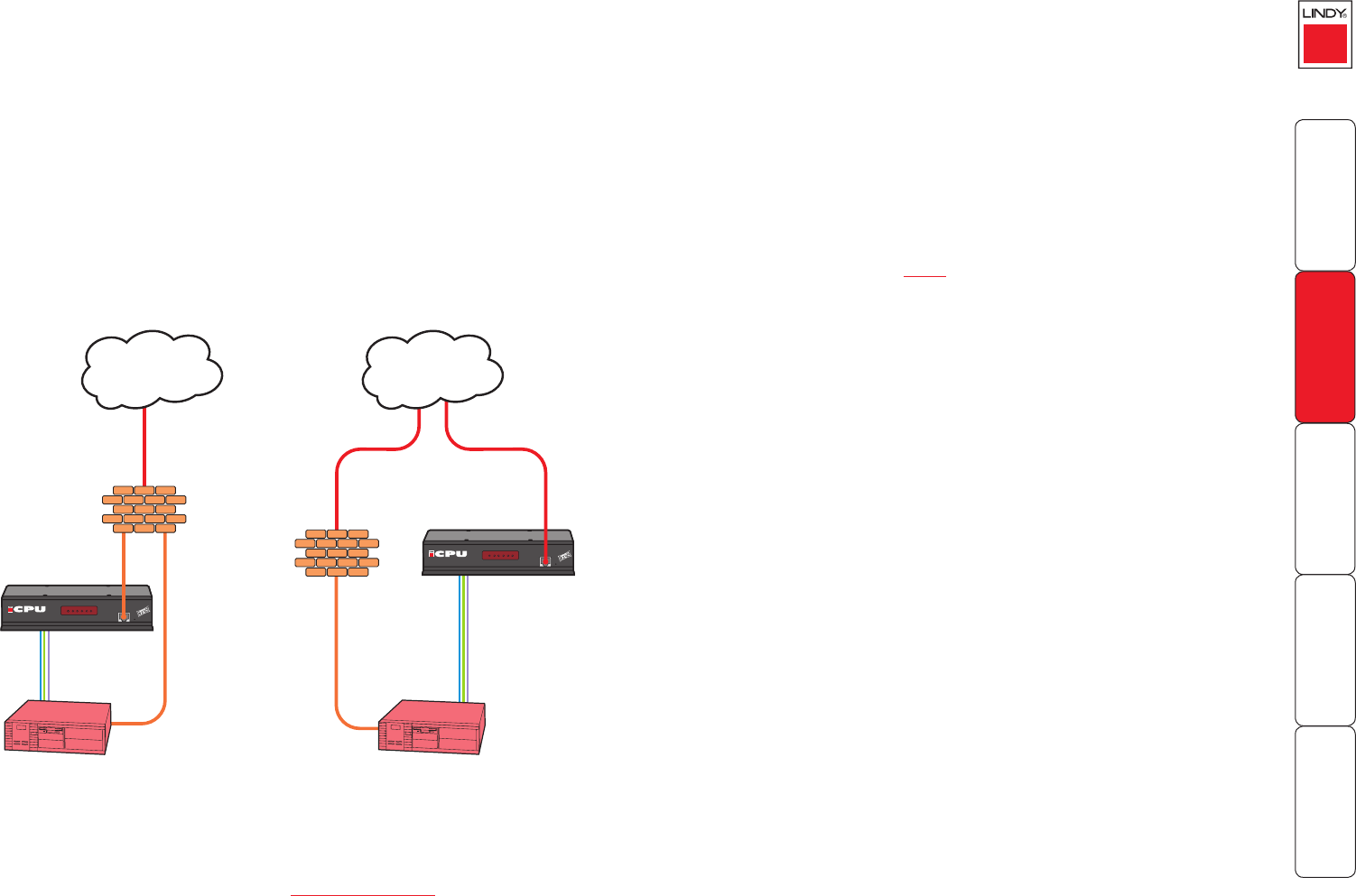
17
Networking issues
Thanks to its robust security the CPU IP offers you great exibility in how it
integrates into an existing network structure. The CPU IP is designed to reside
either on an internal network, behind a rewall/router or alternatively with its
own direct Internet connection.
Positioning CPU IP in the network
Every network setup is different and great care needs to be taken when
introducing a powerful device such as the CPU IP into an existing conguration.
A common cause of potential problems can be in clashes with rewall
congurations. For this reason the CPU IP is designed to be intelligent, exible
and secure. With the minimum of effort the CPU IP can reside either behind the
rewall or alongside with its own separate Internet connection.
Placing CPU IP behind a router or rewall
A possible point of contention between the CPU IP and a rewall can occasionally
arise over the use of IP ports. Every port through the rewall represents a potential
point of attack from outside and so it is advisable to minimise the number of open
ports. The CPU IP usually uses two separate port numbers, however, these are easily
changeable and can even be combined into a single port.
IMPORTANT: The correct conguration of routers and rewalls requires advanced
networking skills and intimate knowledge of the particular network. LINDY cannot
provide specic advice on how to congure your network devices and strongly
recommend that such tasks are carried out by a qualied professional.
Port settings
As standard, the CPU IP uses two ports to support its two types of viewer:
• Port 80 for users making contact with a web browser, and
• Port 5900 for those using the VNC viewer.
When these port numbers are used, VNC viewers and web browsers will locate
the CPU IP correctly using only its network address. The rewall/router must be
informed to transfer trafc, requesting these port numbers, through to the CPU
IP.
When a web server is also on the local network
Port 80 is the standard port used by web (HTTP) servers. If the CPU IP is situated within
a local network that also includes a web server or any other device serving port 80
then, if you want to use the web browser interface from outside the local network
environment, the HTTP port number of the CPU IP must be changed.
When you change the HTTP port to anything other than 80, then each remote
browser user will need to specify the port address as well as the IP address. For
instance, if you set the HTTP port to ‘8000’ and the IP address is ‘192.168.47.10’
then browser users will need to enter:
http://192.168.47.10:8000
(Note the single colon that separates the IP address and the port number).
The rewall/router would also need to be informed to transfer all trafc to the
new port number through to the CPU IP.
If you need to change the VNC port number
If you change the VNC port to anything other than 5900, then each VNC viewer
user will need to specify the port address as well as the IP address. For instance,
if you set the VNC port to ‘11590’ and the IP address is ‘192.168.47.10’ then
VNC viewer users will need to enter:
192.168.47.10::11590
(Note the double colons that separate the IP address and port number).
The rewall/router would also need to be informed to transfer all trafc to the
new port number through to the CPU IP.
LOCREMVNC100 LNKPWR
IP
Access Switch Plus
Internet
LOCREMVNC100 LNKPWR
IP
Access Switch Plus
Internet
CPU IP situated behind
the rewall
KVM link to
host system
KVM link to
host system
Firewall/
router
CPU IP situated alongside
the rewall
Firewall/
router
Local
network
connection
Local
network
connection
IMPORTANT: When the CPU IP is accessible from the public Internet or dial up
connection, you must ensure that sufcient security measures are employed.


















